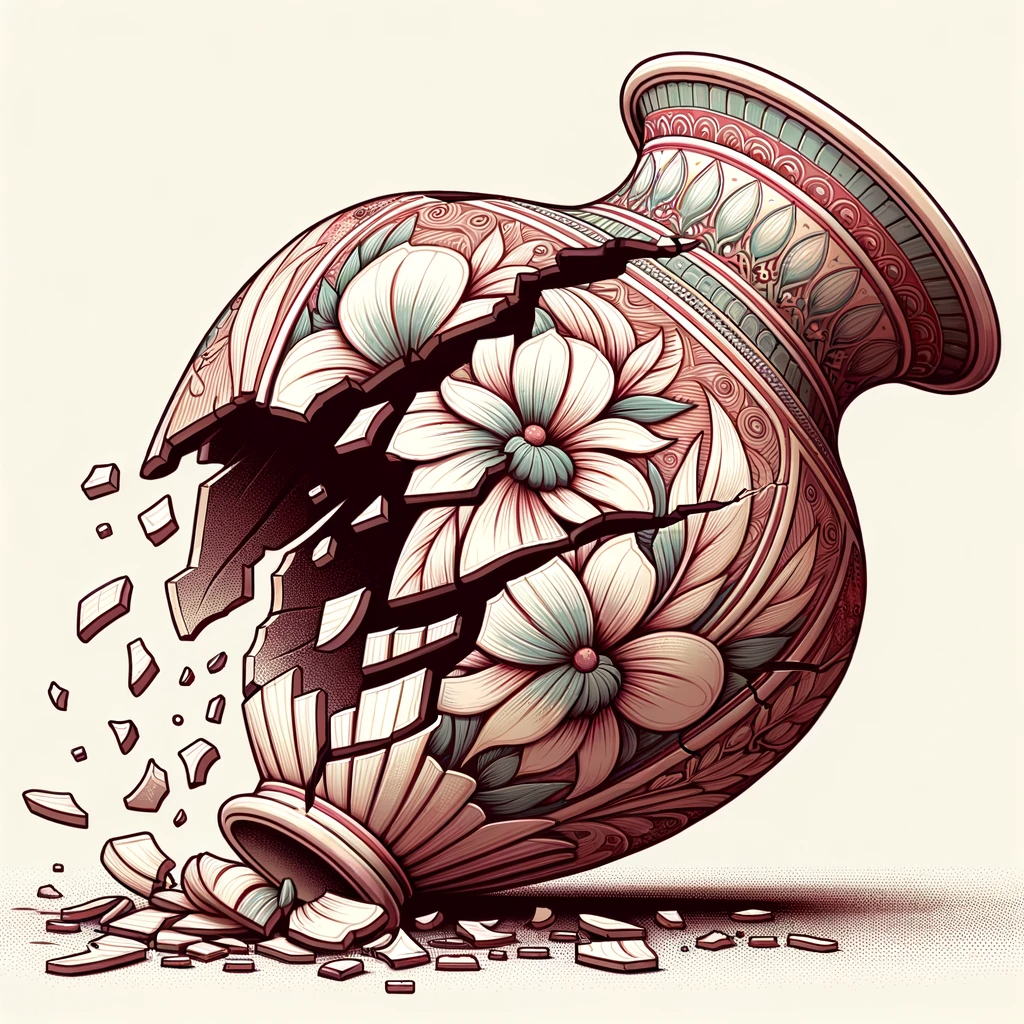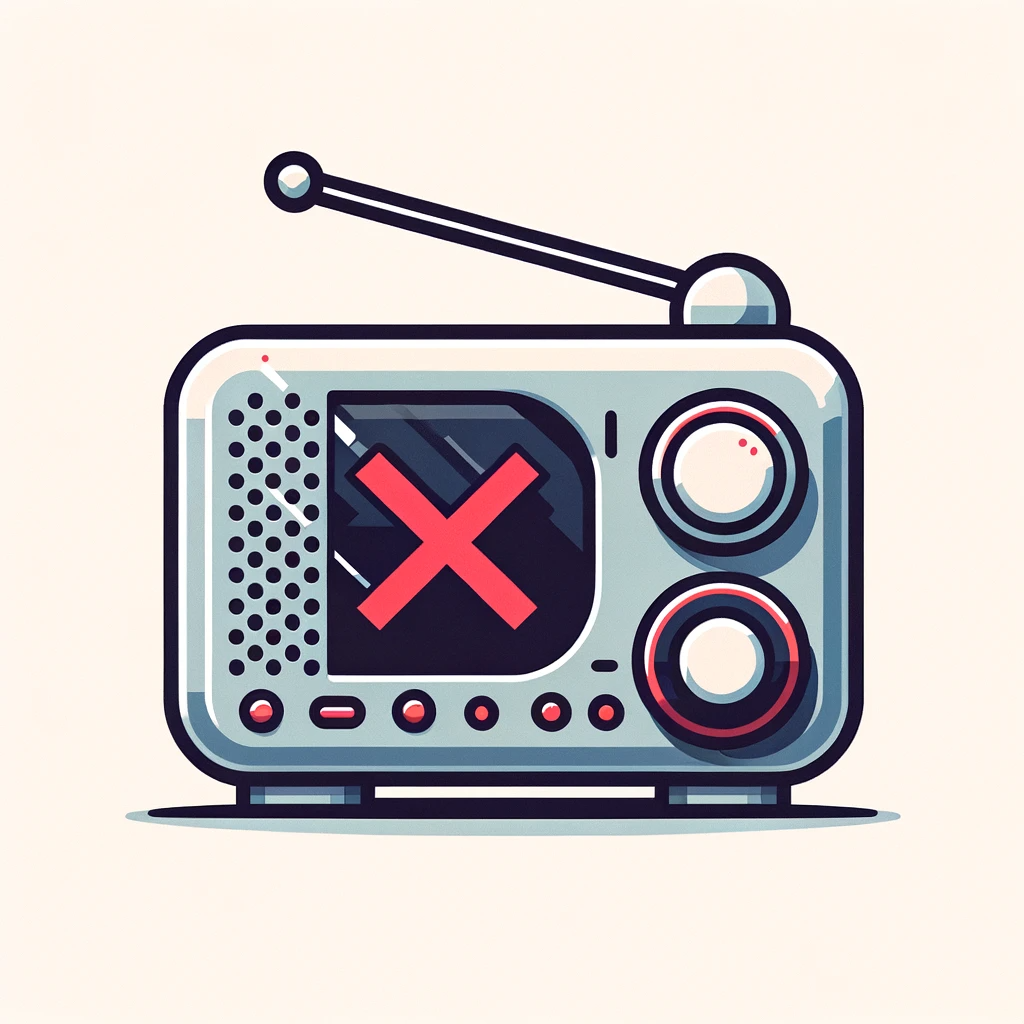Broken
Definition
Broken is an adjective and the past participle of the verb "break." As an adjective, it describes something that is fractured, damaged, or no longer whole. It can also describe a disrupted or interrupted state, as well as emotional distress or instability.
Parts of Speech
- Adjective
- Past participle of "break" (verb)
Pronunciation
American English
- IPA Pronunciation: /ˈbroʊkən/
- Respelling: BROH-kuhn
British English
- IPA Pronunciation: /ˈbrəʊkən/
- Respelling: BROH-kuhn
Etymology
The word "broken" originates from the Old English "brocen," the past participle of "brecan," meaning "to break." It has Proto-Germanic roots in "*brikaną," which relates to fragmentation or damage. Over time, it came to denote not only physical breakage but also emotional and metaphorical forms of damage.
Derivatives
- Unbroken (adjective)
- Brokenness (noun)
- Heartbroken (adjective)
- Brokenhearted (adjective)
- Breakable (adjective)
Synonyms
- Damaged
- Fractured
- Shattered
Antonyms
- Intact
- Whole
- Unbroken
Usage
The adjective "broken" is commonly used to describe physical objects that are damaged or fractured, as in "The glass is broken." It is also used metaphorically to describe emotional states, for example, "She felt broken after the loss."
Related Terms
- Fracture: A crack or break in a material or bone.
- Shatter: To break into many small pieces.
- Repair: To fix something that is broken.
Detailed Definitions
Adjective
- Fractured or damaged and no longer in one piece: Describes an object that is physically compromised.
- Example: "The vase was broken after it fell."
- Interrupted or not continuous: Describes a disrupted sequence, such as broken communication or a broken line.
- Example: "They could only hear each other in broken phrases."
- Emotionally distressed or defeated: Used to describe a person or spirit that feels deeply hurt or defeated.
- Example: "He was left broken after the tragedy."
broken



🇨🇳 Mandarin
- 破碎
- IPA: /pʰo˥˩ ʂuɛ˥˩/
- Respelling: pò suì
- 损坏
- IPA: /sʊn˥˩ xuai˥˩/
- Respelling: sǔnhuài
🇮🇳 Hindi
- टूटा हुआ
- IPA: /ʈuː.ʈaː hʊ.aː/
- Respelling: ṭūṭā huā
- खराब
- IPA: /kʰaː.raːb/
- Respelling: kharāb
🇪🇸 Spanish
- Roto
- IPA: /ˈro.to/
- Respelling: roto
- Quebrado
- IPA: /keˈbra.ðo/
- Respelling: quebrado
🇫🇷 French
- Cassé
- IPA: /ka.se/
- Respelling: cassé
- Brisé
- IPA: /bʁi.ze/
- Respelling: brisé
🇦🇪 Modern Standard Arabic
- مكسور
- IPA: /makˈsuːr/
- Respelling: maksūr
- مشقوق
- IPA: /maʃˈquːq/
- Respelling: mashqūq
🇧🇩 Bengali
- ভাঙ্গা
- IPA: /bʱaŋga/
- Respelling: bhāṅgā
- খারাপ
- IPA: /kʰaraːp/
- Respelling: khārāp
🇷🇺 Russian
- Сломанный
- IPA: /sləˈman.nɨj/
- Respelling: slomannyj
- Разбитый
- IPA: /rɐzˈbʲit.ɨj/
- Respelling: razbityj
🇵🇹 Portuguese
- Quebrado
- IPA: /keˈbɾadu/
- Respelling: quebrado
- Partido
- IPA: /paʁˈtidu/
- Respelling: partido
🇮🇩 Indonesian
- Pecah
- IPA: /pəˈt͡ʃah/
- Respelling: pecah
- Rusak
- IPA: /ruˈsak/
- Respelling: rusak
🇩🇪 German
- Kaputt
- IPA: /kaˈpʊt/
- Respelling: kaputt
- Gebrochen
- IPA: /ɡəˈbʁoːxən/
- Respelling: gebrochen
🇯🇵 Japanese
- 壊れた
- IPA: /koːɾe̞ta/
- Respelling: kowareta
- 折れた
- IPA: /oːɾe̞ta/
- Respelling: oreta
🇻🇳 Vietnamese
- Bị vỡ
- IPA: /bi˧˥ vo˧˧/
- Respelling: bị vỡ
- Hỏng
- IPA: /hɔŋ˧˥/
- Respelling: hỏng
🇰🇷 Korean
- 깨진
- IPA: /k͈æ.d͈ʑin/
- Respelling: kkaejin
- 고장난
- IPA: /ko.d͈ʑaŋ.nan/
- Respelling: gojangnan
🇹🇷 Turkish
- Kırık
- IPA: /kɯˈɾɯk/
- Respelling: kırık
- Bozuk
- IPA: /boˈzuk/
- Respelling: bozuk
🇵🇰 Urdu
- ٹوٹا ہوا
- IPA: /ʈuː.ʈaː hʊ.aː/
- Respelling: ṭūṭā huā
- خراب
- IPA: /kʰaː.raːb/
- Respelling: kharāb





